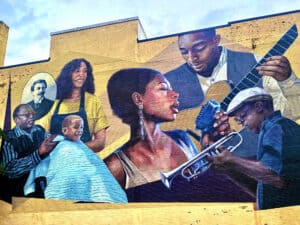The Memphis Chess Club—the second-oldest in the United States— is...

Nerding Out in Nature: The Magic of Memphis’ Nature Scene
Three outdoor enthusiast groups share the many nerdy wonders of Memphis nature.

Three outdoor enthusiast groups share the many nerdy wonders of Memphis nature.

story & photos by Joey Amato Everyone knows that I am a sucker for small-city charm, so I decided to venture about an hour and a half outside of Atlanta
©2015-2024 Focus LGBT+ Magazine | All Rights Reserved